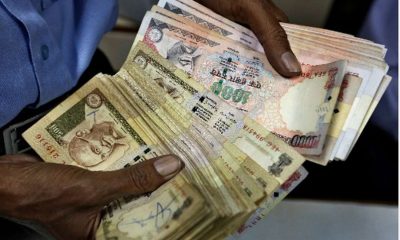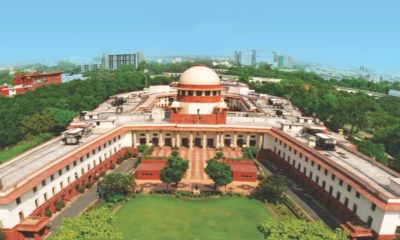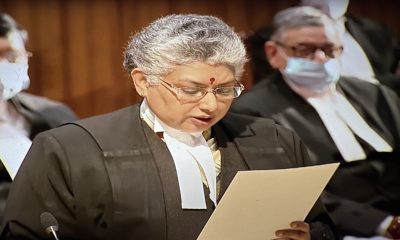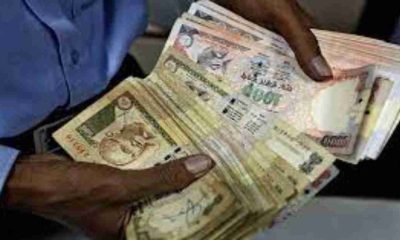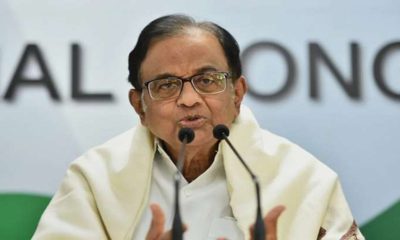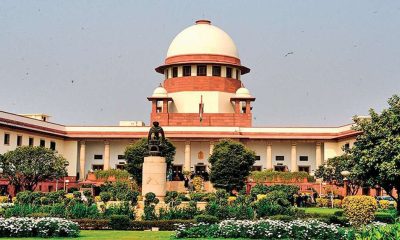Latest business news
Missing link: The informal sector
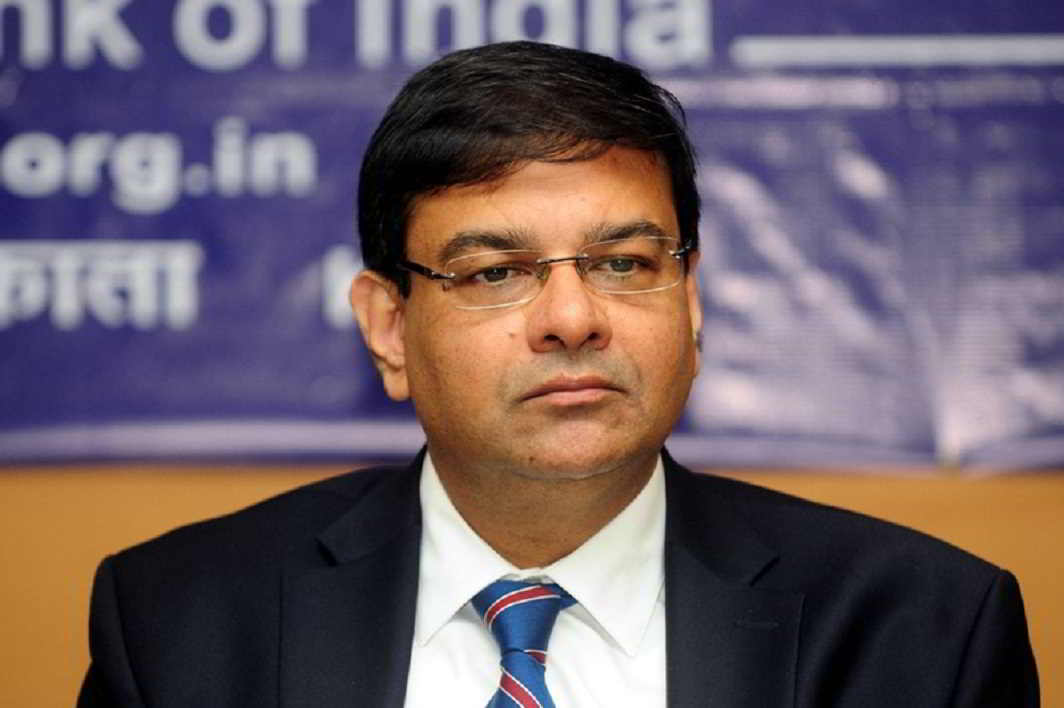
[vc_row][vc_column][vc_column_text]Flawed methodology distorts CSO data about the economy
By Sindhu Bhattacharya
The Government would have us believe that demonetisation has had an almost negligible impact on India’s economic growth in the December quarter of this fiscal. Never mind that most economists have been flummoxed by the GDP data which the Central Statistics Office (CSO) released on Tuesday and whose authenticity many have subsequently questioned. Whether the CSO has been completely honest in gathering and extrapolating data is for the experts to decipher—Opposition parties like the Congress have already begun doubting the veracity of what CSO has laid on the table. But one point cannot be ignored—does the CSO use correct methodology to reflect actual ground realities of India’s economy or is the complete exclusion of our thriving informal economy in data projection the real culprit?
Two caveats: First, the numbers released on Tuesday are advance estimates and therefore an updated version will come in later where corrections will most likely be incorporated. Besides, some growth numbers for previous quarters have been revised downwards and this makes the data for Q3FY17 look rosy in comparison. Second, former Chief Statistician Pronob Sen and some other economists have pointed out that CSO doesn’t cook the numbers. Sen told The Indian Express, “The CSO has made no mistake. Its estimate is based on specific assumptions and it is not allowed to fiddle with these assumptions. For any change in methodology, it has to approach the Advisory Committee on National Accounts.”
Also read: Questioning CSO data is jumping the gun, say experts, wait for revision
Here’s what the CSO data showed: GDP growth at 7% in the December quarter versus 7.4% in the September quarter and 6.9% in the December quarter of the previous fiscal year. Growth in private final consumption accelerated to 10.1% in Q3FY17 versus 5.1% in Q2FY17; growth in manufacturing accelerated to 8.3% in the December quarter against 6.9% in the September quarter of FY17. If demonetisation severely impacted economic activity in India—a widely held perception based on anecdotal evidence—how could these numbers be correct?
But the CSO has been a butt of jokes since Tuesday for something it cannot control—its faulty methodology. Its data collection seems to ignore a very significant portion of India’s economy: the informal sector. According to the brokerage Ambit, the informal sector accounts for over 40% of India’s GDP and provides employment to over 75% of India’s labour force. In absolute terms this means that the informal economy generates GDP worth $907 billion and provides employment to 360 million of India’s total labour force of 480 million people.
“The quarterly estimates published by the CSO by definition are a result of an extrapolation exercise based on partial data… the numbers estimate growth in the informal economy using formal economy-related data,” Ambit had said in a note to clients earlier. It had further noted that the main source of CSO data for the informal sector is the NSSO, which publishes with a lag and captures data with a 2-5 year frequency!
Put simply, this means CSO methodology would anyway have shown the results it has indeed shown since it is not tracking the informal sector directly and using relatively old data. One wonders at the economists for then being surprised at the data – it should have been obvious that the pain of demonetisation, which was largely felt in the informal sector, would not get captured in its entirety by the government’s own statistical office.
Neelkanth Mishra, India equity strategist, Credit Suisse told the Indian Express in the same piece that “Almost 45 per cent of the GDP is informal. The CSO uses different proxies to estimate GDP. For instance, sales tax collections is taken as a proxy for the trade sector. Here, if states post robust sales tax growth, the trade sector growth will reflect it. The CSO doesn’t get influenced by anyone. Yes, we should discuss how quarterly GDP data can be arrived at to make it more useful.”
The question which the economists now need to ponder over is whether the formal sector wasn’t majorly impacted by demonetisation and if this is the case, why did the large companies escape India’s biggest economic disrupter since Independence?
According to Ambit’s note tracking 17 “high frequency” sectors and how they were impacted through demonetisation, 10 of these sectors showed negative growth in the December quarter versus the September quarter. The biggest drop was seen in passenger vehicle sales (29.6%) followed by two wheeler sales (18.7%). Non-oil bank credit fell 6% while retail credit was down 4.5%. Domestic tractor sales fell 7% while cement production was lower by 3%
Soumya Kanti Ghosh, the Chief Economist at the State Bank of India explained how the formal economy continued its growth despite demonetisation. SBI considered the latest quarterly results of listed entities with more than Rs 100 crore turnover; out of 946 listed entities about 720 entities were studied. Ghosh found these 720 entities had average cash sales (assuming 2% of net sales) of Rs 24.40 crore per entity, an increase from Rs 22.98 crore in Q2 FY17 per entity for 731 entities.
Also read: ‘Too early to celebrate’ India’s GDP beat: Former FM Chidambaram
Radhika Rao, an economist at Singapore’s DBS Bank, told CNBC sub-trends suggested the formal sector might have actually benefited from the banknote ban, with more transactions taking place through electronic means.
BJP MP Subramanian Swamy told CNBC though that many of the calculations for the informal sector were based on “guesswork,” “benchmarks” and “ratios” as opposed to raw data. “Therefore, I won’t place too much emphasis on it. The real issues are the slowdown in small-and-medium industries because of the cash crunch,” Swamy said.
The bottomline is, in the absence of data capturing of the small and medium enterprises and the huge parallel economy which thrives in India, CSO’s quarterly exercise lacks meaning. And the data it puts out needs to be checked and cross checked before being accepted. No Prime Minister, this is not a case of Harvard versus hard work, it is more a case of closing one’s eyes to reality. Unless the informal sector gets its fair share in official data capturing, discrepancies will remain.[/vc_column_text][/vc_column][/vc_row]
Latest business news
Google restores delisted Indian apps after government intervention
Google on Saturday restored all Indian apps it had removed.

Google has started to restore all the delisted Indian mobile apps on Play Store agian, which they had removed due to a disagreement over service fees. After a discussion between company representatives and IT Minister Ashwini Vaishnaw, the decision was made, according to sources.
The step was taken in response to Vaishnaw’s strong statement in which he said that it is not allowed for apps to be removed from the Google Play Store. The minister had said, India is very clear, our policy is very clear…our startups will get the protection that they need.
Vaishnaw continued saying that he has already given Google a call. They will be speaking with the app developers who were delisted this week. This is not acceptable. The minister said this kind of delisting cannot be permitted.
Ten Indian companies’ apps were banned by Google on Friday, causing outrage in one of its fastest-growing markets. With 94% of phones running on its Android platform, Google holds a large portion of the Indian market. Popular names like Naukri and Bharatmatrimony were on the list.
The main point of contention is Google’s in-app purchase fees, which range from 11% to 26%. Indian startups have long opposed the US tech giant’s actions, believing them to be unfair.
The founder of Bharat Matrimony, Christian Matrimony, Muslim Matrimony, and Jodii, Matrimony.com, expressed shock at the matchmaking apps’ removal from the Google Play Store.
Shaadi. Com CEO Anupam Mittal described it as a dark day for India’s internet, highlighting the possible broad effects on matchmaking services. He also called Google an evil.
While, Kuku FM Co-founder Vinod Kumar Meena in a statement had said that Google was behaving like a monopoly.
Meanwhile, Google temporarily withdrew the famous Indian payments app Paytm from the Play Store in 2020, claiming a few policy infractions. Due to this decision, the founder of the company as well as the larger startup community came together to build their own app stores and file lawsuits against Google.
Latest business news
Anant Ambani says he is 100% lucky to get Radhika Merchant in his life
Anant Ambani said he was grateful to get Radhika as his life partner. He said he is 100% lucky to get Radhika Merchant in his life. He said every day he is falling more and more in love with her. He added although he had known Radhika for the last 7 years, it felt he had met her only yesterday. He thanked Radhika for everything.
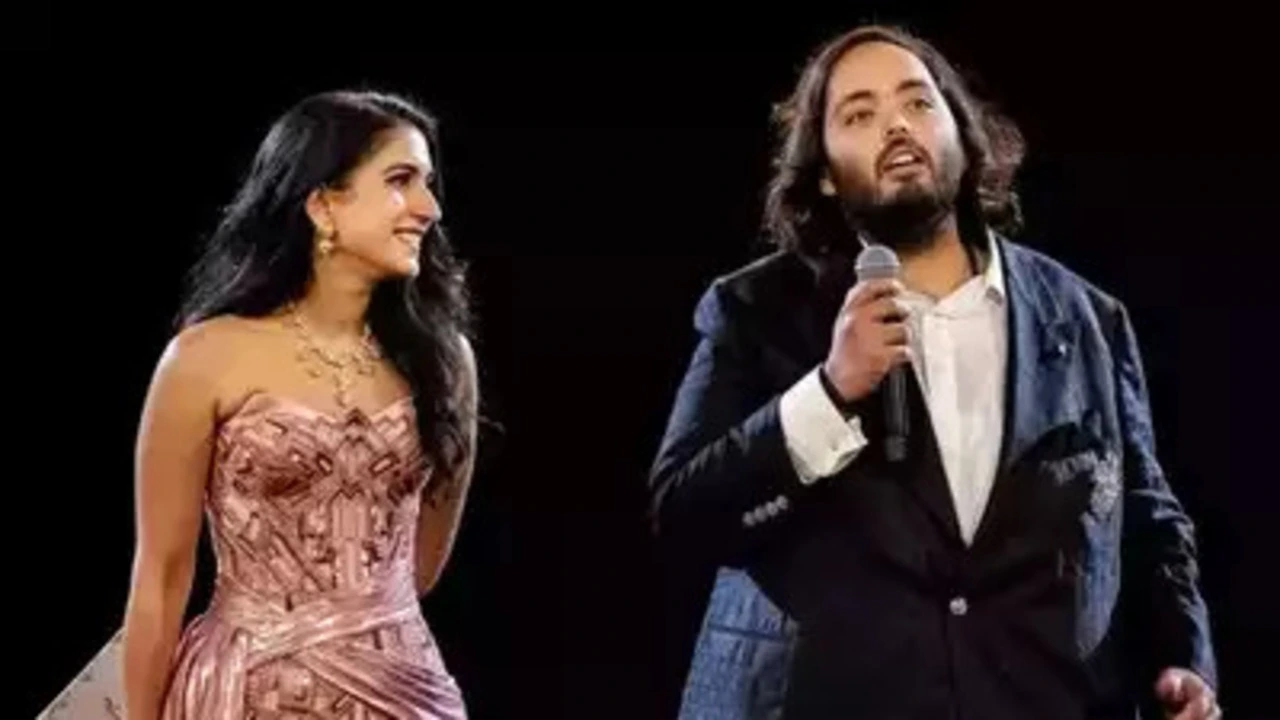
Anant Ambani and Radhika Merchant’s grand three-day wedding celebrations began with a glamorous cocktail night on Friday in Jamnagar. During the celebrations, Anant Ambani also gave a speech wherein he thanked his late grandfather Dhirubhai Ambani and grandmother Kokilaben Ambani for inspiring him. Anant Ambani said he was grateful to get Radhika as his life partner. He said he is 100% lucky to get Radhika Merchant in his life. He said every day he is falling more and more in love with her.
He expressed his gratitude to his mother for pulling together the lavish three-day wedding celebrations in Jamnagar. Anant thanked his mother for all she had done. He said all the arrangements had been done by his mother and nobody else. He added his mother had gone all out and she had worked 18-19 hours a day and he was extremely grateful to her.
He also thanked all the guests who were present there at the pre-wedding celebrations. He said everyone had made it to Jamnagar to make him and Radhika feel special. He said both of them were honored and humbled to have all of them present there. Anant said he was sorry if they had caused an inconvenience to anyone. He asked for forgiveness. He hoped everyone is going to enjoy the coming three days. He also thanked his mother, father, sister, brother, his sister-law and his brother in-law for making this event memorable.
Anant said everyone has been sleeping for less than 3 hours a day for the last 2-3 months and he was very happy to share this joy with everyone. The youngest Ambani talked about his personal struggles and how his parents had always supported him. He further added his life had not been entirely a bed of roses. He said he had also experienced the pain of thorns. He said he had faced many health crises.
Latest business news
Facebook chief Mark Zuckerberg shares pictures from 2nd day of Anant Ambani and Radhika Merchant pre-wedding celebrations
Zuckerberg shared pictures from the 2nd day of Anant Ambani and Radhika Merchant’s pre-wedding celebrations. In the photograph Mark Zuckerberg can be seen along with his wife Priscilla Chan. The couple is exuding happiness as they prepare for the event. He captioned the picture it is getting wild out here.
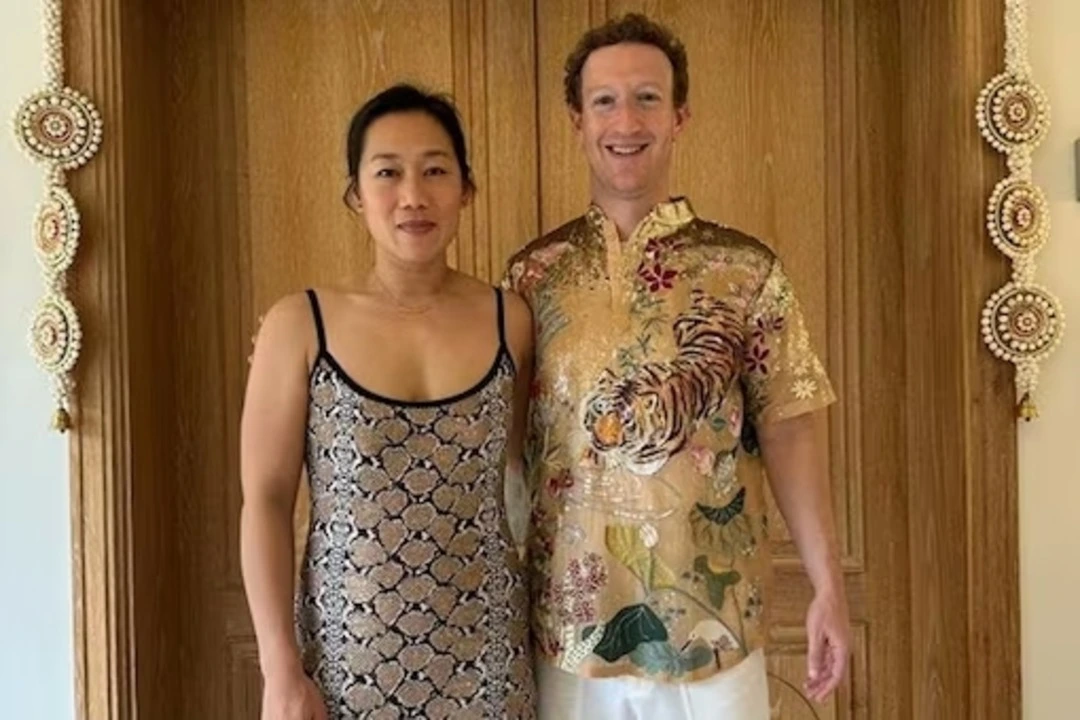
Facebook boss Mark Zuckerberg and wife Priscilla Chan joined the star- studded pre-wedding celebrations of Anant Ambani and Radhika Merchant in Jamnagar on Friday. The event was attended by many prominent figures from different fields. Zuckerberg took to his Instagram handle congratulated the couple and said he loved Indian weddings.
Zuckerberg shared pictures from the 2nd day of Anant Ambani and Radhika Merchant’s pre-wedding celebrations. In the photograph Mark Zuckerberg can be seen along with his wife Priscilla Chan. The couple is exuding happiness as they prepare for the event. He captioned the picture it is getting wild out here.
The theme of the opening day of the pre-wedding celebrations was Evening in Everland as the guests wore cocktail attire. The first day of the grand celebrations elevated the expectations of the guests for the following days. The theme of the 2nd day of the pre-wedding bash is known as a Walk on the Wildside and the guests can be seen in Jungle Fever attire.
Zuckerberg has opted for an animal print shirt with white trousers, Chan is complementing his look in a strappy one piece in black and golden. The Jungle theme is aligned to Vantara, Reliance’s animal welfare initiative undertaken and launched by Anant Ambani a few days back.
International pop star Rihana electrified the pre wedding celebrations on Friday with an amazing performance, marking her debut appearance in India. The chart topping artist engaged the audience with performances of her iconic hits which included Pour it Up, Work and Diamonds.
Zuckerberg graced the opening day, wearing a black-on-black firefly blazer and shoes from Alexander McQueen while his wife Priscilla wore a black gown with gold flower details and other accessories such as dainty chain bracelet, gold necklace and stud earrings. Mark Zuckerberg and wife Priscilla Chan are one of the Power couples invited from the global business community for the festivities currently underway at Jamnagar.
-
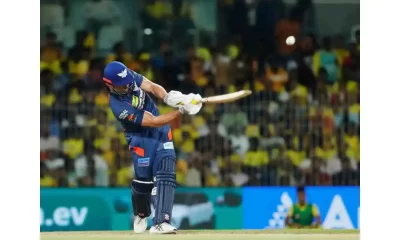
 Cricket news23 hours ago
Cricket news23 hours agoIPL 2024: Marcus Stoinis hits first IPL century as Lucknow Super Giants beat Chennai Super Kings by 6 wickets
-
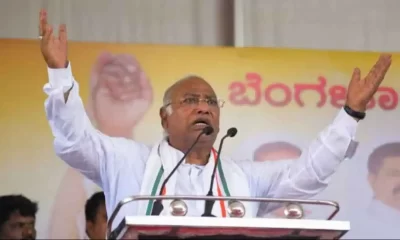
 2024 Lok Sabha Elections15 hours ago
2024 Lok Sabha Elections15 hours agoMallikarjun Kharge vows to continue politics till his last breath to defeat BJP
-
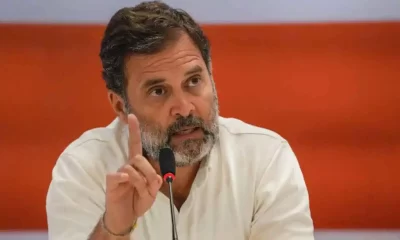
 2024 Lok Sabha Elections22 hours ago
2024 Lok Sabha Elections22 hours agoRahul Gandhi clarifies on wealth survey remark, says aim is to identify injustice
-
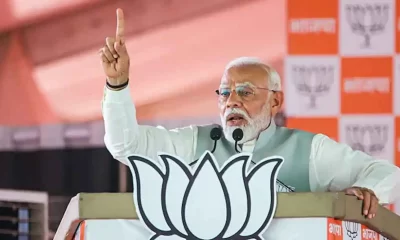
 2024 Lok Sabha Elections18 hours ago
2024 Lok Sabha Elections18 hours agoPM Narendra Modi slams Congress over Sam Pitroda’s inheritance tax remarks, accuses Congress of intending to impose higher taxes
-
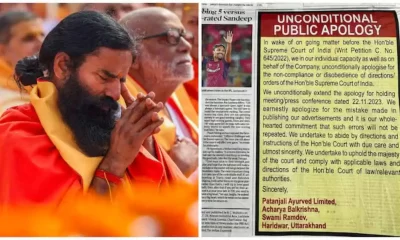
 India News21 hours ago
India News21 hours agoRamdev, Balkrishna publish bigger apology in newspapers after Supreme Court’s rap
-
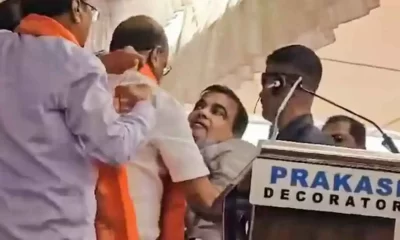
 2024 Lok Sabha Elections16 hours ago
2024 Lok Sabha Elections16 hours agoNitin Gadkari says he’s better now after collapsing at election rally in Maharashtra’s Yavatmal
-

 Trending20 hours ago
Trending20 hours agoA waiter’s life: Social media users go emotional on watching viral video
-

 Entertainment17 hours ago
Entertainment17 hours agoMadhuri Dixit, Karisma Kapoor recreate Dil To Pagal Hai dance battle on Dance Deewane

